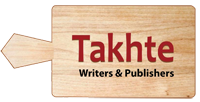Introduction
The coronavirus is over one year old. We have seen it change its form, being far more infectious and has acquired greater transferability especially amongst the youth, unlike the first wave. The onset of the virus has unleashed a major disruption in learning and working leading to uncertainty in many ways.
In order to make youth voices heard, UNESCO and Takhte jointly invite young writers to address through words important questions for humanity in our current context, and particularly, going forward. .
Contest Guidelines
All participants in the essay contest must be residing in India at the time of submission. All essays must be written in English.
i. Age group and essay category for children: As indicated above, children who are between 11 and 14 years of age must select and write an essay on a topic from Category A. Title and word count: The essay title should correspond exactly to one of the topics provided. Do not change the title. The word count of the essay should not exceed 600 words. (A word count of 540 – 600 words would be ideal.)
ii. Age group and essay category for youth: As indicated above, youth who are between 15 and 24 years of age must select and write an essay on a topic from Category B. Title and word count: The essay title should correspond exactly to one of the topics provided. Do not change the title. The word count of the essay should not exceed 700 words. (A word count of 630 – 700 words would be ideal.)
Submission Guidelines
i. Participants can visit the link for the contest on the websites of Takhte (http://www.takhte.in/contest.php) and UNESCO New Delhi (http://www.unesco.org/new/en/newdelhi/home), where the details of the contest will be available. The contest details will also be available on Takhte and UNESCO New Delhi’s Facebook and Instagram pages.
ii. Participants must complete and submit the required essay submission form, which will be available on line. All fields (participant’s personal details accompanied by a recent photograph, as well as the complete text of the essay) must be carefully completed and the form needs to be submitted to the email year2ac2021@gmail.com
UNESCO and Takhte will not charge any fee to participants at any stage of the process.
CLICK HERE TO APPLY
Contest Categories, Essay Topics and Submission Guidelines
The essay contest has categories for children-
(aged 11–14 years at the time of submission)
youth (aged 15–24 years at the time of submission).
The five essay topics for participants in each of these categories are as follows:
Essay topics for children
|
The COVID-19 pandemic has been marked by school closing across the world. What lessons can we draw to make education systems more resilient for the future? |
|
|
In times of hardship, our community, culture and traditions help maintain our social and mental wellbeing. What are some of the aspects of your culture that have helped you and your community? |
|
|
Globally, women hold only 7 per cent of government leadership positions, yet many countries led by women have been celebrated for their response to Covid-19. How can we encourage more women to take up leadership positions? |
|
|
The pandemic has alerted us about our broken relationship with nature. What lessons can we learn for a better future on issues related to climate change, biodiversity and the environment? |
|
|
Lockdowns and social isolation has led to increased screen time. This entails the risk of exposure to online hate speech, harassment and bullying. What is the role of young people in promoting peace online? |
B. Essay topics for youth
|
We have seen a transition to remote/online learning modalities, together with a change in the labour market where digital skills, socio-emotional skills, higher order thinking skills and adaptability are being valued more than ever. How can technical and vocational education be strengthened in India to address these needs? |
|
|
The pandemic has caused 100 million direct tourism jobs to be at-risk. Women, who make up 54 percent of the tourism workforce, and youth have been particularly affected by disruptions to cultural tourism worldwide. As a young person, what initiatives would you recommend to revive cultural tourism in a post-pandemic world, and to promote inclusive, community-driven and sustainable tourism? |
|
|
The coronavirus has highlighted social and gender inequalities, such as the rise in domestic abuse, loss of education access, and the reduction of job opportunities for urban migrant workers. What kinds of responses are needed to address prevailing inequalities and violence? What kind of role can youth play in this space? |
|
|
The pandemic has highlighted the service gaps with respect to communities in rural areas, urban slums, people with disabilities, ethnic minorities, and other backward classes. How can we create more equitable health systems in which we do not leave out the most vulnerable sections of society? |
|
|
Artificial Intelligence has played an important role in the Indian economy, yet potential misuses of AI in many fields, such as economics and health, could have negative impacts on our lives. What can we do for AI products to be more ethical and human-centered? |



